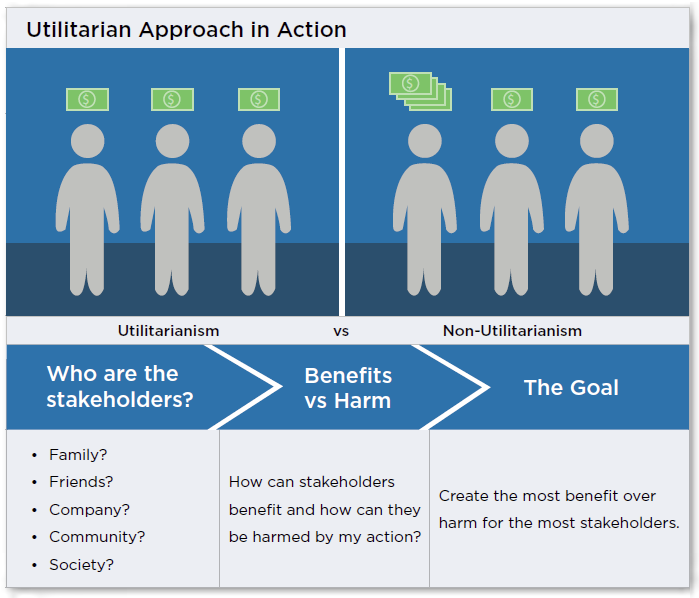Five Ways To Shape Ethical Decisions: Utilitarian Approach
May 4, 2018
Last time, we talked about the significance of shaping an ethical character and mindset. This allowed us to segue into the various ethical approaches or theories that provide the ethical building blocks you can use in your classroom to debrief any ethical dilemma. Of course, every dilemma can be dissected using more than one approach, and thus, the end result or decision may be different depending on the road taken. Our first approach: Utilitarian.
The Utilitarian Approach assesses an action in terms of its consequences or outcomes; i.e., the net benefits and costs to all stakeholders on an individual level. It strives to achieve the greatest good for the greatest number while creating the least amount of harm or preventing the greatest amount of suffering. It holds that every entity’s interests should be considered equally when making the decision, and this includes those of other species since they also are capable of suffering.
So for any set of options it would view the most ethical option as the one which produces the best balance of benefits over harm for the most stakeholders. Outcomes may be quantified in such terms as contentment and suffering, the relative value of individual preferences, monetary gain or loss, or the short-term and long-term effects of an action.
In a business context, this approach might rely on a statistical analysis of probable outcomes, a classic costs/benefits assessment, and/or a consideration of the marginal utility of a consequence for various stakeholders in the group.



.png?width=80&name=1-questions%20(1).png)